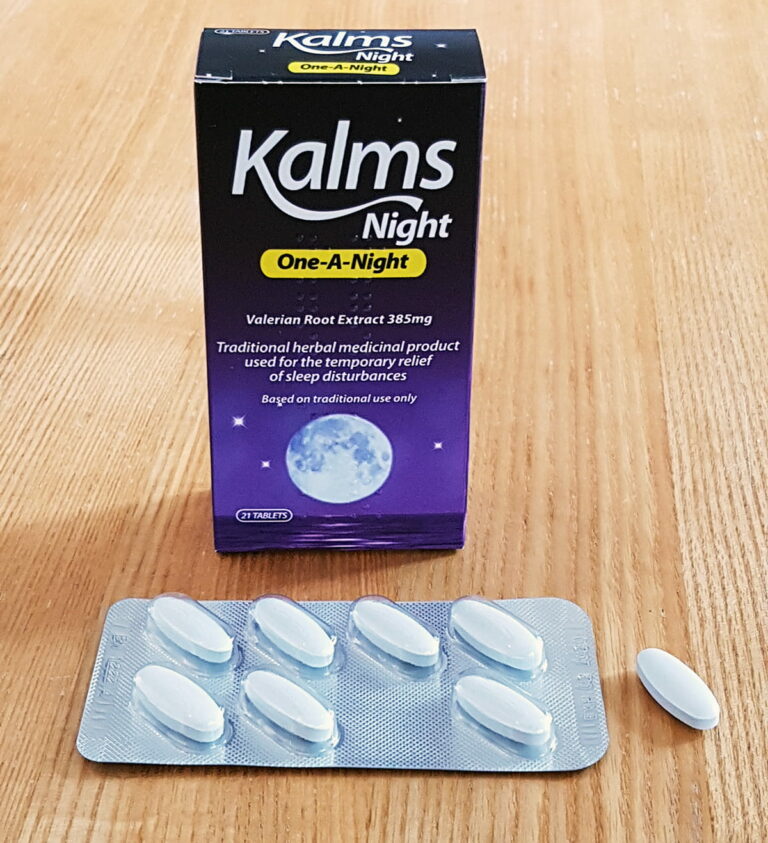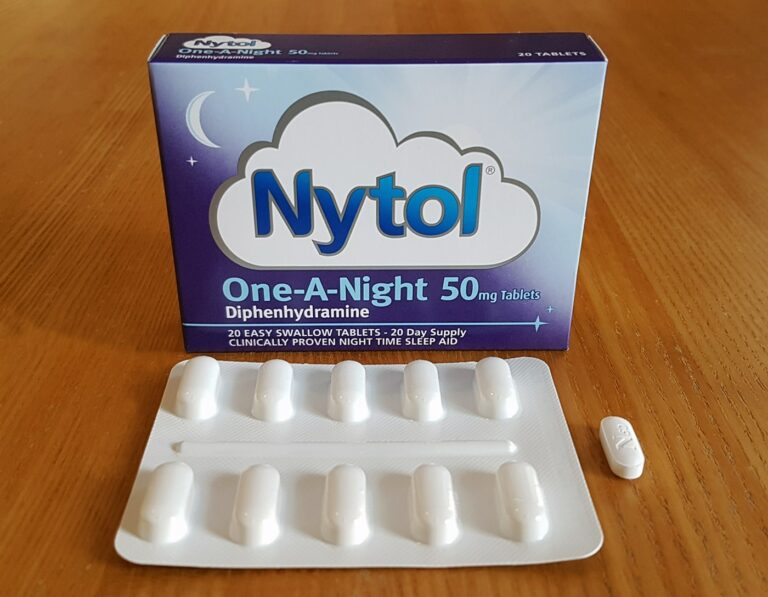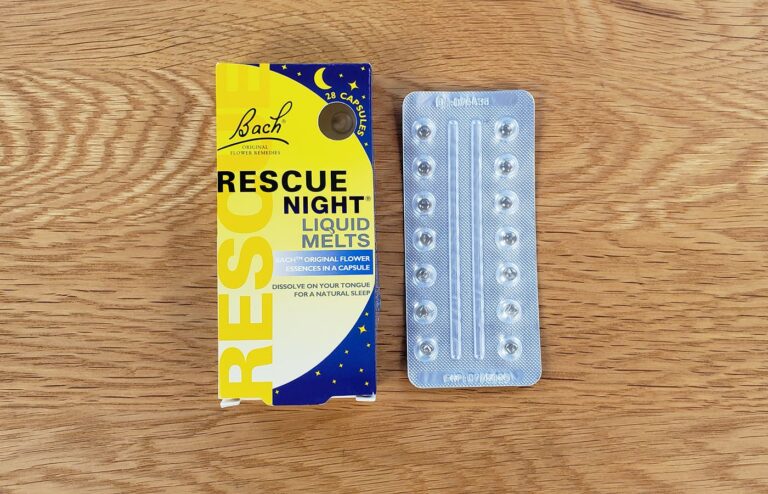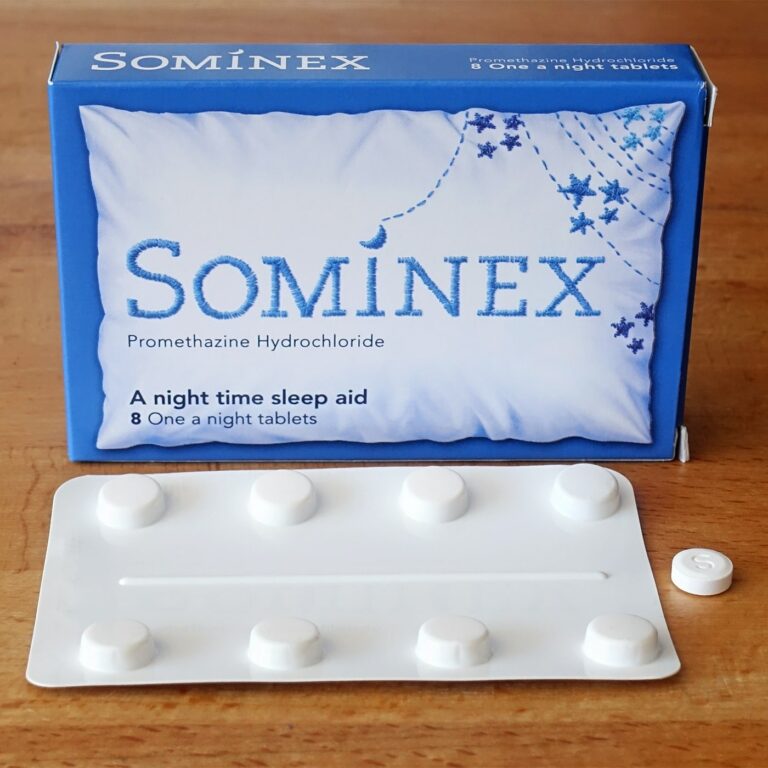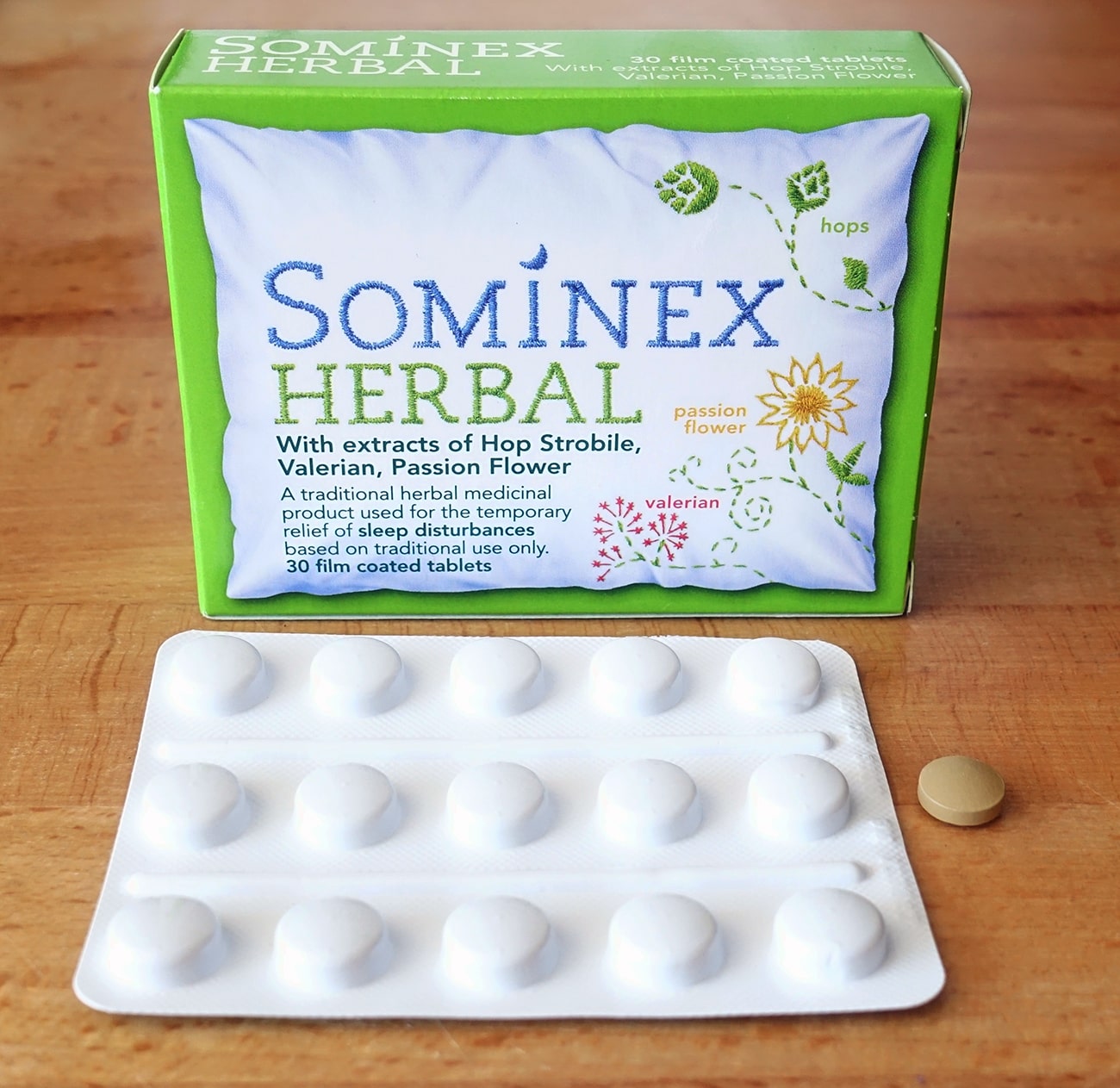
Disclosure: This review is based on my personal experience of taking Sominex Herbal, and you may have a different experience. Please discuss taking any new sleep aid with a healthcare professional rather than only relying on online sources.
Updates: I first wrote this article in 2014 when I tried the Sominex Herbal. The most recent update in 2024 was to remove the outdated warnings and side effects listed on the pack I bought, and replace them with suggestions of where to find the most current safety information.
Sominex Herbal is a sleep aid in tablet form that’s made and sold in the UK, and is available over the counter without a prescription. I bought the one in the photo above on Amazon.
In this review, I’ll be discussing the herbal version, which contains valerian, hops, and passionflower. It’s not to be confused with the antihistamine version of Sominex, which contains promethazine instead of herbal ingredients.
My experience
I could probably sum up Sominex Herbal in six words: pretty packaging, strong taste, light sedation.
What immediately stood out for me is the smell and taste, which I believe is because of the valerian content. Valerian is notorious for being strong in both departments, so I washed the two pill dose down as quickly as possible when I took them.
As briefly unpleasant as the taste is, I’m okay with it since it’s a natural ingredient. I’ve also found the same strong smell and taste with other brands containing valerian, such as Nytol Herbal.
The Nytol Herbal and Sominex Herbal I tried both contained hops, valerian, and passionflower, so it didn’t surprise me that I had a similar experience with both of them.
A mild feeling of sedation
I took Sominex Herbal every night for a week, and although I wouldn’t describe it as strong, I do feel that it had a mild sedative effect.
After that first week, I again took it on an occasional night over the next couple of weeks and found there was a noticeable effect each time.
Admittedly, it’s difficult to tell if there’s a placebo effect at work or not. Knowing Sominex Herbal has the same ingredients as another sleep aid that had previously worked for me might have influenced my expectations too.
Interestingly, I’ve seen suggestions (such as at mountsinai.org) that valerian can take several weeks before it works properly.
Guidance I’ve seen on several over the counter sleep aid patients leaflets is that you should consult your doctor if symptoms persist after a week or two. That leaves a bit of a conundrum if valerian really does take two or more weeks to work to full effect!
As I said at the start, I felt some sedation when I first took it, and it didn’t seem any stronger to me after two weeks. Perhaps the hops and passionflower also had a role to play – if they do help with sleep in a shorter time frame.
No noticeable side effects for me
Although some people might experience side effects when taking Sominex Herbal, I had no noticeable problems. I felt physically fine during the time period I took it and had no morning grogginess.
That’s one of the reasons I personally prefer herbal sleep aids, even if the effect isn’t usually so strong for me. I sometimes get unpleasant side effects from antihistamine-based sleeping pills, such as a fuzzy head, dry mouth, or a mild headache.
It made a welcome change not to wake up feeling like I needed twice as much coffee to get up to speed even after sleeping soundly, which is how I sometimes feel after stronger sleeping pills – even some over the counter ones.
Further information
Ingredients
The information leaflet that came with the pack I bought listed the ingredients of each tablet as follows.
Please note that this was in 2014, and the current ingredients may be different:
- Hop strobile extract 34 mg
- Valerian root extract 30.8 mg
- Passionflower extract 15.2 mg
- Ethanol
- Calcium hydrogen phosphate
- Maltodextrin
- Microcrystalline cellulose (E460)
- Colloid anhydrous silica
- Stearic acid
- Magnesium stearate
- Hypromellose 4500
- Polyethylene glycol 400
- Iron oxides (E172)
- Titanium dioxide (E171)
Manufacturer warnings and possible side effects
It’s always wise to check with your doctor or a qualified healthcare provider that a sleep aid is safe and appropriate for you to take, even if it’s available over the counter. They can give you personalised advice rather than relying on the label or patient leaflet.
The patient leaflet that came with the pack I bought did list some groups of people that should not take Sominex Herbal, as well as potential side effects to be aware of. So it’s important to check the current leaflet carefully as well as consulting a healthcare provider to make sure it’s appropriate for you to take.
Sominex is made by a company called Teva UK. Their website tevauk.com (not a sponsored or paid link) has a section about both versions of Sominex. It includes a medical information email address if you have questions about it.
I couldn’t find an online version of the warnings and side effects on their website. I’ve only been able to find it by searching online with the phrase ‘Sominex Herbal patient leaflet’ and browsing the different chemists that stock it.
Further reading
Mayo Clinic valerian Q&A – has a useful overview of using valerian for sleep.
WebMD hops section – lots of information about hops. They also cover valerian and passion flower.
NCCIH passionflower overview – overview of passionflower uses and evidence.
My sleep hygiene article – tips for sleeping naturally.

